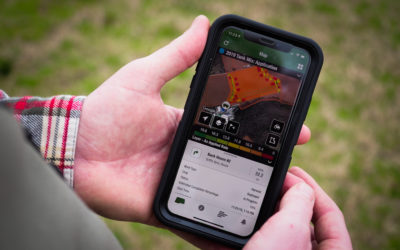Alexandra Duel-Hallen

Biography
Dr. Duel-Hallen's current research interests are in wireless communications and optimization. Her recent and current projects focus on game theory and machine learning for communications and power systems and wireless channel characterization and prediction.
Education
-
Ph.D.
1987
Electrical Engineering
Cornell University, Ithaca -
Master's
1983
CICE
University of Michigan, Ann Arbor -
Bachelor's
1982
Math and Computer Science
Case Western Reserve University, Cleveland
Recent Publications
- Game-Theoretic Mixed H2/H∞ Control with Sparsity Constraint for Multi-Agent Control Systems (2023)
- Robust and Scalable Game-theoretic Security Investment Methods for Voltage Stability of Power Systems (2023)
- A Robust Stackelberg Game for Cyber-Security Investment in Networked Control Systems (2022)
- Early Warning of mmWave Signal Blockage Using Diffraction Properties and Machine Learning (2022)
- A Stackelberg Security Investment Game for Voltage Stability of Power Systems (2020)
- Early Warning of mmWave Signal Blockage and AoA Transition Using sub-6 GHz Observations (2020)
- A Cyber-Security Investment Game for Networked Control Systems (2019)
- A Distributed and Resilient Bargaining Game for Weather-Predictive Microgrid Energy Cooperation (2019)
- Sparse Wide-Area Control of Power Systems using Data-driven Reinforcement Learning (2019)
- A Sensing Contribution-Based Two-Layer Game for Channel Selection and Spectrum Access in Cognitive Radio Ad-hoc Networks (2018)
Awards & Honors
- 2022 - Fellow of Asia-Pacific Artificial Intelligence Association (AAIA)
- 2011 - IEEE Fellow, for contributions to equalization and wireless communications
- 2007 - Author of a paper selected for The Best of the Best: Fifty Years of Communications and Networking Research (56 papers in Communications and Networking), IEEE Press, 2007
- 2006 - Highly Cited Researcher, ISIHighlyCited.com
- 2002 - Author of a paper included in the IEEE Communications Society 50th Anniversary Journal Collection as one of 41 key papers in physical and link layer areas, 1952-2002.
- 1995 - ORAU Junior Faculty Enhancement Award
- 1994 - NSF Research Initiation Award
- 1982 - CWRU Award to the Outstanding Upperclassman in Mathematics
Recent News

The Future of 6G in North Carolina
Posted on December 29, 2022 | Filed Under: Research
6GNC at NC State utilizes research teams to cover an incredible number of areas and technologies that will play a key role in 6G.

Brain Power
Posted on March 14, 2019 | Filed Under: News
Ziad Ali aspires to combine electrical engineering and neuroscience to treat disorders such as epilepsy and Parkinson’s. The NC State senior heads to California in the fall to pursue a Ph.D. at Stanford thanks to a Knight-Hennessy Scholarsh …
Developing Economical Controllers for Next-Generation Power Systems
Posted on October 20, 2015 | Filed Under: News and Research
Dr. Aranya Chakrabortty and Dr. Alexandra Duel-Hallen (Sasha) have been awarded $600,000 from the Division of Computer and Network Systems (CNS) of the US National Science Foundation to develop an advanced design architecture that will enab …
